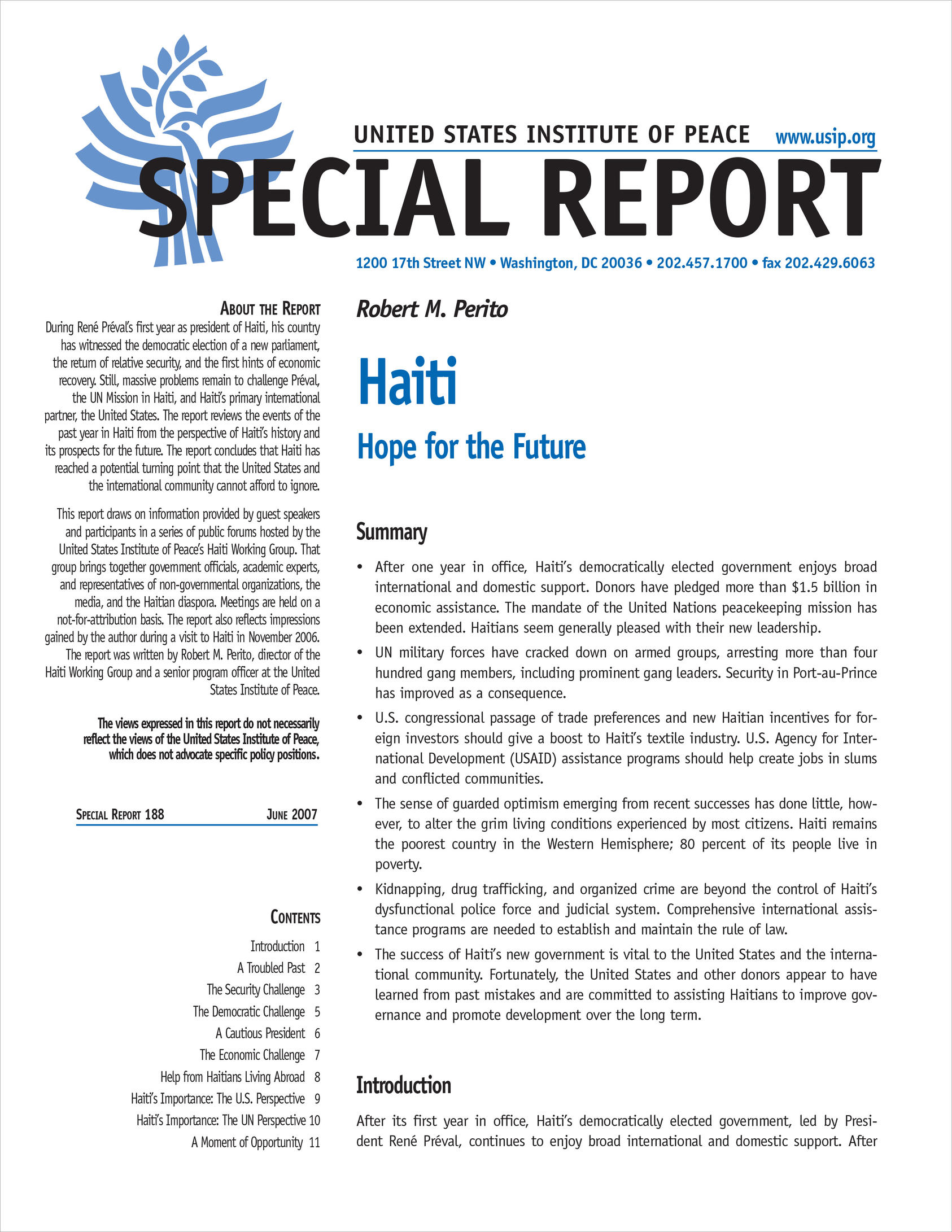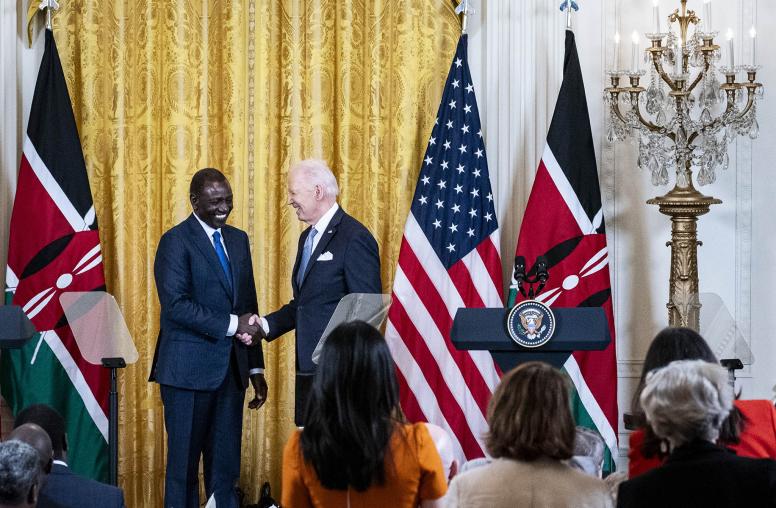Haiti: Hope for the Future
Over the past year, Haiti has witnessed the democratic election of a new parliament, the return of relative security, and the first hints of economic recovery. Still, massive problems remain to challenge Haiti and Haiti’s primary international partner, the United States.

Summary
- After one year in office, Haiti’s democratically elected government enjoys broad international and domestic support. Donors have pledged more than $1.5 billion in economic assistance. The mandate of the United Nations peacekeeping mission has been extended. Haitians seem generally pleased with their new leadership.
- UN military forces have cracked down on armed groups, arresting more than four hundred gang members, including prominent gang leaders. Security in Port-au-Prince has improved as a consequence.
- U.S. congressional passage of trade preferences and new Haitian incentives for foreign investors should give a boost to Haiti’s textile industry. U.S. Agency for International Development (USAID) assistance programs should help create jobs in slums and conflicted communities.
- The sense of guarded optimism emerging from recent successes has done little, however, to alter the grim living conditions experienced by most citizens. Haiti remains the poorest country in the Western Hemisphere; 80 percent of its people live in poverty.
- Kidnapping, drug trafficking, and organized crime are beyond the control of Haiti’s dysfunctional police force and judicial system. Comprehensive international assistance programs are needed to establish and maintain the rule of law.
- The success of Haiti’s new government is vital to the United States and the international community. Fortunately, the United States and other donors appear to have learned from past mistakes and are committed to assisting Haitians to improve governance and promote development over the long term.
About the Report
During René Préval’s first year as president of Haiti, his country has witnessed the democratic election of a new parliament, the return of relative security, and the first hints of economic recovery. Still, massive problems remain to challenge Préval, Haiti, and Haiti’s primary international partner, the United States. The report reviews the events of the past year in Haiti from the perspective of Haiti’s history and its prospects for the future. The report concludes that Haiti has reached a potential turning point that the United States and the international community cannot afford to ignore.
This report draws on information provided by guest speakers and participants in a series of public forums hosted by the United States Institute of Peace’s Haiti Working Group. That group brings together government officials, academic experts, and representatives of non-governmental organizations, the media, and the Haitian diaspora. Meetings are held on a not-for-attribution basis. The report also reflects impressions gained by the author during a visit to Haiti in November 2006. The report was written by Robert M. Perito, director of the Haiti Working Group and a senior program officer at the United States Institute of Peace.



